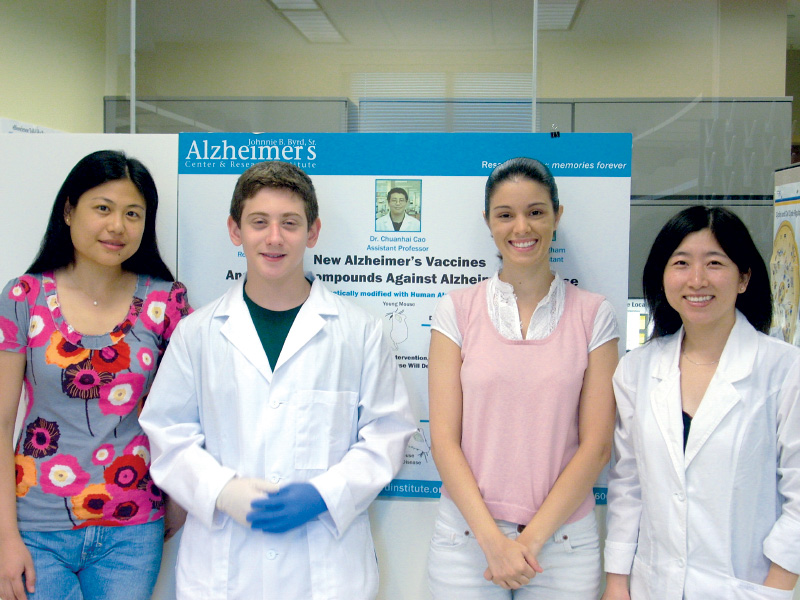Coffee reduces the risk of developing AD. Scientists of the University of South Florida and of the University of Miami ascertained in a study that a higher consumption of caffeine, coming mainly from coffee, determines a delay on Alzheimer’s disease onset, even in older people that already suffer from cognitive mental disorders. Researchers believe that a balanced daily coffee consumption among those aged at least between 30 and 50 can substantially reduce the risk to develop AD or delay its progression. Interacting with coffee elements that are still unknown, caffeine increases GCSF production, which is the real protective factor against the disease. To examine this important discovery in depth, we contacted Professor Huntington Potter, Director of Alzheimer’s Disease Programs at the School of Medicine of the University of Colorado.
What is the origin of such discovery?
Dr. Gary Arendash and his team of the University of South Florida carried out the first experiments in collaboration with Dr. Chuanhai Cao. Retrospective studies on people had indicated that drinking coffee would reduce the risk of developing AD. Therefore, we carried out tests on mice with AD, giving them coffee doses. Results indicated that caffeine prevented Alzheimer affected mice from developing amyloid in the brain or losing their memory and were even able to reduce Alzheimer amyloid in the brain of older mice, restoring their memory and cognition.
How does caffeine act on diseased cells?
During experiments was found out that the effect of caffeine is able reduce the production of beta-amyloid peptide, which causes degenerative diseases, such as Alzheimer. Such effect was obtained above all in AD transgenic mice few hours after administration.
What is the current status of your research?
If we manage to get some funding for the research, our aim is to start a clinical trial that will allow us observing the effect of caffeine on AD patients. Dr. Cao is already working on a clinical trial with caffeine and coffee on MCI (Mild Cognitive Impairment) patients in China together with some neurologists.
What could be the future developments?
It is possible that caffeine might represent an important step for a safe and easily obtained prevention, such as for Alzheimer’s disease treatment. Dr. Cao is currently treating two cases that actually delayed memory decline process thanks to the administration of coffee.
When will the clinical trial phase start?
If everything goes well, we will start the clinical trial within a year. It is very difficult to conduct such researches in the United States. On the contrary, Dr. Cao obtained the cooperation of the most important neurological hospitals of the cities of Dalian and Tianjjin in China, which agreed to carry out the tests on their patients.


Recommended song for the reading of the present article: Precious Memories – Aretha Franklin and James Cleveland

